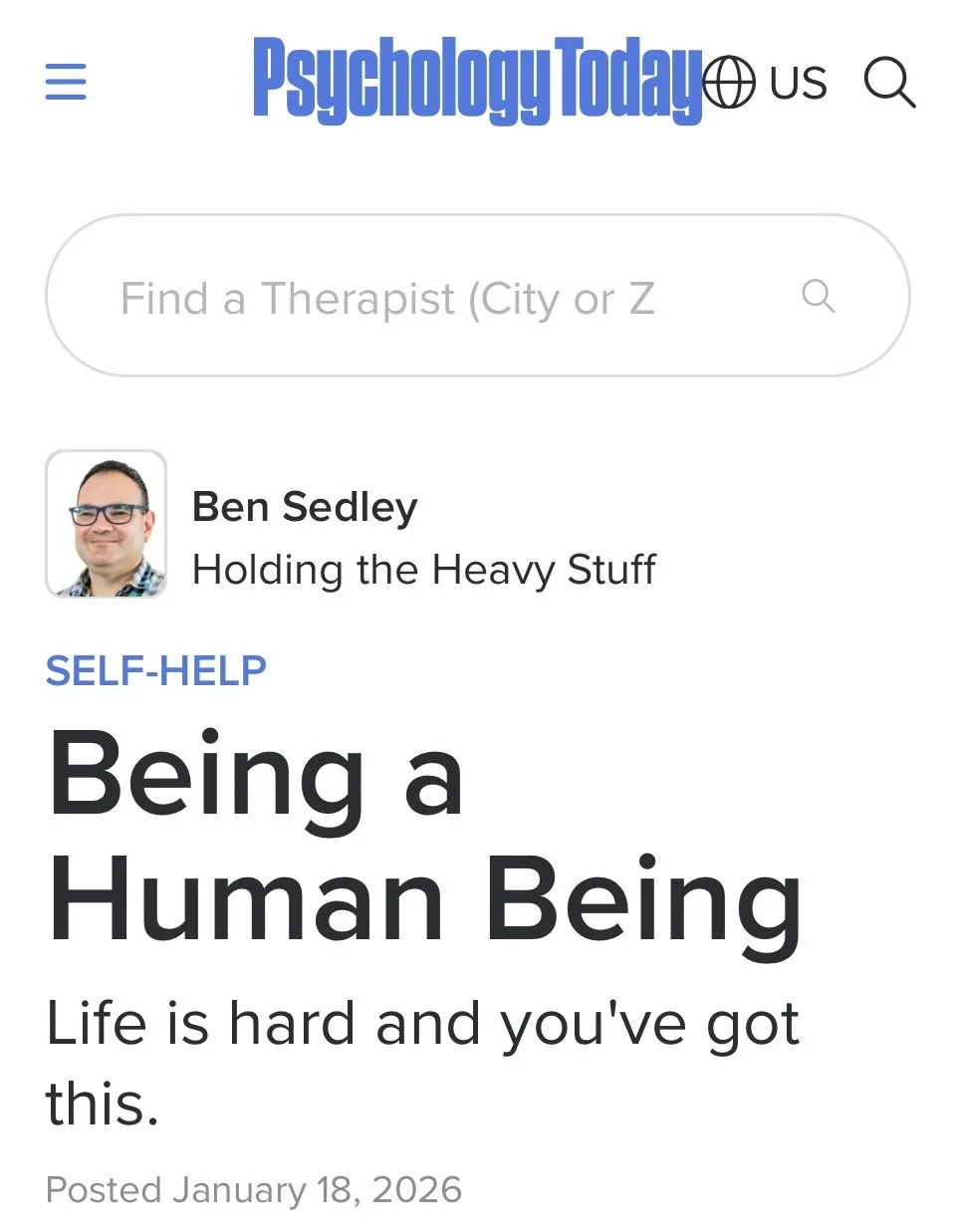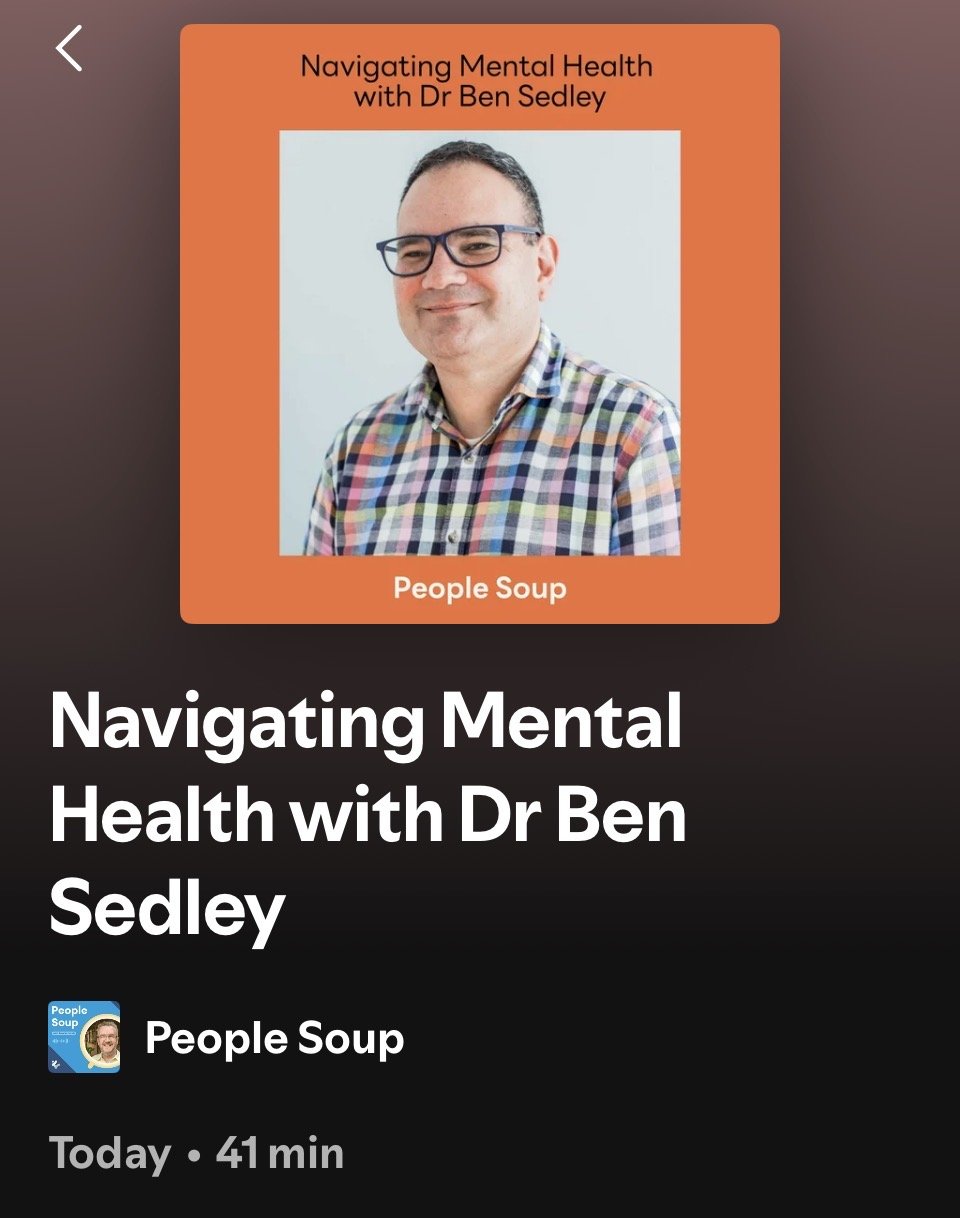Ben Sedley
PSYCHOLOGIST, AUTHOR, SPEAKER
I help kids, teens and adults rethink mental health by embracing self-compassion, valuing emotions, and moving toward what truly matters.
Books by Ben Sedley
-

Holding the Heavy Stuff
Finding room for critical thoughts and painful emotions.
-

Stuff That’s Loud
A teen’s guide to unspiralling when OCD gets noisy.
-

Stuff That Sucks
A teen’s guide to accepting what you can’t change and committing to what you can.
— ABOUT ME
Kia ora, I’m Ben Sedley
My approach is centered on helping people identify what they truly care about, and then supporting them to actively engage with and care about those things—even on the difficult days.
For over 20 years, I’ve worked with children, teenagers, and adults, specialising in Acceptance and Commitment Therapy (ACT). My focus is on helping people make space for difficult thoughts and feelings while moving toward a life that feels rich and meaningful.
I believe mental health is about more than diagnoses and treatment plans, it’s about validating experiences, fostering self-compassion, and tapping into our innate resilience. Rather than just telling people how to ‘fix’ themselves, I aim to create resources and conversations that help people truly understand themselves and their struggles.
— TRAINING & EVENTS
Finding acceptance, compassion and meaning
I regularly speak on topics like ACT, OCD, engaging with teenagers, and rethinking how we talk about mental health. These sessions are designed for professionals, parents, educators and anyone interested in a compassionate, practical approach to mental well-being.
— OCD Skillbuilders NZ
Empowering Clinicians to Transform OCD Care
I have helped many individuals and families facing OCD, and I founded OCD Skillbuilders NZ as a dedicated resource for clinicians.
At OCD Skillbuilders NZ, you'll find detailed information about upcoming workshops and webinars, and I welcome discussions on topics such as using ERP or ACT, as well as any requests for additional resources.
Regular content and useful links are posted to the dedicated Facebook page, offering an additional platform for engagement and learning.
Upcoming Training & Events
Recent media
Psychology Today monthly blog
People Soup Interview
Life's Dirty Little Secrets Podcast
Money FM Singapore
How to be a good parent when you're struggling Radio NZ Interview
ACT/ERP for OCD
Teen OCD & Anxiety: How to Help Your Child Navigate Intrusive Thoughts
RNZ – Parenting
RNZ – Dealing with teenagers' shame, loneliness and embarrassment
OCD
Poocano: Finding Flexibility in OCD
Dr Jess meets Dr Ben: A chat about youth mental health and how parents can help
Refilling Your Gas Tank with Nice Gas
The Power of Letting Go
Connect with me
If you’re looking for insights or just a fresh perspective on mental health in the media, I invite you to explore my books, join a workshop, or reach out via this form.
For enquiries regarding my private clinical practice, please visit ACT Wellington.





















